Background
Paul Éluard was born Eugène Émile Paul Grindel on December 14, 1895, in Saint-Denis, France. He was the son of Eugène Clément Grindel, a bookkeeper, and Jeanne-Marie Cousin Grindel, a dressmaker.

Paul Eluard (1895-1952), French poet and Maria Benz, said Nusch (1906-1946), his wife. They got married in 1934.
Painter Max Ernst (L) with Gala Eluard (C), her husband Paul Eluard (R) and Ernst's wife Louise Straus Ernst, circa 1924 in Saint Brice, France.
Nusch and Paul Eluard.
At a fair in Montmartre, French poets Paul Eluard, Andre Breton, and Robert Desnos pose in a photographic set featuring an airplane.
Surrealist poets Andre Breton, Paul Eluard, Tristan Tzara, and Benjamin Peret signed this photograph, taken in 1932.
Poets Louis Aragon, Andre Breton, and Paul Eluard (from left) with Elsa Triolet Aragon and Nusch Eluard.
The French poet Paul Eluard during the reception given in his honor at the City Hall of Milan, Italy in 1946.








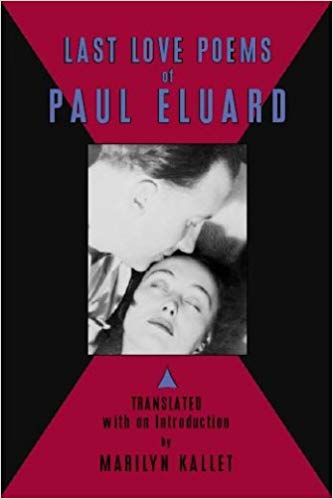
(This bilingual edition translates Eluard's marvelous book...)
This bilingual edition translates Eluard's marvelous books of Last Love Poems composed during 1946-1951. Included is an enlightening introduction covering Eluard's later works.
https://www.amazon.com/gp/product/0976844931/?tag=2022091-20
2006
Paul Éluard was born Eugène Émile Paul Grindel on December 14, 1895, in Saint-Denis, France. He was the son of Eugène Clément Grindel, a bookkeeper, and Jeanne-Marie Cousin Grindel, a dressmaker.
Éluard attended the local school in Aulnay-sous-Bois. Then, he obtained a scholarship to attend the Ecole Superieure de Colbert. At the age of 16, he contracted tuberculosis, interrupted his studies, and remained hospitalized until April 1914 in the Clavadel sanatorium near Davos.
Eluard’s childhood in Saint-Denis, France, was hindered with a bout of tuberculosis that forced him to spend nearly two years in a sanatorium for treatment. However, it was while he was a patient at the Swiss sanatorium that he took an interest in poetry and began writing his own verse. When World War I broke out, Eluard was released from the sanatorium and joined the French military. After serving as a hospital orderly, he fought in the trenches. Ironically, he was serving in one of these trenches when Le Devoir el Vinquietude was published.
After the war, Eluard, determined to continue his writing career, began to frequent literary circles. Some of his acquaintances were Tristan Tzara and Andre Breton, as well as others involved in the Dadaist movement. Along with Eluard, they became instrumental in developing the surrealist movement. Excited with the new literary ideas, Eluard penned Necessites d’une vie et les consequences des reves in 1921, in which he expressed his surrealist ideas, exploring the relationship between dream and reality.
Éluard participated in the first public demonstrations of the Paris dadaists and became involved with the magazine ironically called Littérature, founded by André Breton (1896–1966), Philippe Soupault (1897–1990), and Louis Aragon (1897–1982). At about the same time, he published Les animaux et leurs hommes, les hommes et leurs animaux (Animals and their men, men and their animals) and in 1921 started a short-lived Dada publication, Proverbe. As Dada gave way to surrealism, Éluard took part in the surrealists' earliest demonstrations. Taking as their slogan the imperative to "change life," which was coined by the French poet Arthur Rimbaud (1854 - 1891), the surrealists engaged in a rebellion against the values that had led to the enormous massacres of the First World War. Meanwhile, Éluard continued to work with his father on construction projects in the Parisian suburbs - and to him is owed a street named Rue Jacques Vaché, after one of the early surrealist heroes.
The arrival in Paris of the German painter and sculptor Max Ernst (1891–1976), his friend but also Gala's lover, complicated Éluard's life with conflicting feelings of amity and jealousy. In 1924 the poet went off on a "fugue" that fed rumors about his mysterious disappearance while he traveled around the world. About the time he returned, Breton published the first of his two major surrealist manifestos. Éluard was immediately and in all ways committed to the group. He took part in Une vague de rêves (A wave of dreams), the first surrealist collective text, collaborated with Benjamin Péret (1899–1959) on 152 proverbes mis au goût du jour (1925; 152 tasteful proverbs for today), and with André Breton and René Char (1907–1988) on Ralentir travaux (Slow down - construction ahead), and again with Breton on L'immaculée conception (1930; The immaculate conception).
While in Spain in 1936 for a series of conferences on Pablo Picasso (1881–1973), Éluard saw that country erupt into civil war. Now he committed his poetry to the service of politics, published "Novembre 1936" in the French Communist newspaper L'humanité, and renewed ties with the PCF, which fully supported the Spanish republicans. Éluard also wrote, "Victoire de Guernica" (Victory of Guernica), which together with Picasso's famous painting was on display in 1939 at the Spanish Pavilion at the New York World's Fair. In spite of this work with the Communists, Éluard helped Breton organize the International Exhibition of Surrealism in Paris, which opened in January 1938, and he also collaborated on the Dictionnaire abrégé du surréalisme (1938; Brief dictionary of surrealism). He also published L'évidence poétique (1937; Poetic evidence), Les mains libres (1937; Free hands), Cours naturel (1938; Natural course), and Médieuses (1939).
French poet Eugene Grindel, one of the founders of the surrealist movement, felt that the mission of a poet was to keep pushing language boundaries in an effort to change the meaning of life. Using the pseudonym Paul Eluard, he was one of the most popular writers of his time. Eluard’s most remarkable achievement would seem to consist in his repeated efforts to eliminate the barriers between intimacy and the problems of the community, between the outside world and inner visions, between verbal and plastic art, efforts that have resulted in eternal poetry whose appeal will never be lost.
Eluard published more than seventy books, beginning with Le Devoir el Vinquietude, a poetry collection. In addition to his many volumes of poetry, Eluard, always politically active, also published several political credos espousing his communist ideals.
(This bilingual edition translates Eluard's marvelous book...)
2006With the outbreak of the Spanish Civil War in 1936, Eluard’s voice became more political. Moved by the struggle in Spain, his poems became declarations of resistance and liberty.
By World War II, Eluard’s ideas had become socialist in nature, and in 1939 he joined the underground in France, which Germany had invaded. He continued to publish verse of resistance, but used various pseudonyms, such as Jean du Hault and Maurice Hervent, to conceal his identity. These poems, which included “Liberte” and “Rendezvous Allemand,” were widely circulated throughout the country, and became quite famous.
By the end of the war, Eluard had rejoined the Communist Party in France (he had belonged for a brief time in the 1930s) and completely abandoned the surrealist movement. He devoted his time to international communism, attending party conferences in such places as England, the Soviet Union, and Mexico. Eluard became an unabashed admirer of the Soviet dictator Josef Stalin, even writing a poetic tribute to the man. During this period, the United States government denied Eluard a visa because of his political affiliations. Rolf Venner, writing in the Reference Guide to World Literature, claimed that Eluard’s overall project was not to incorporate Marxist ideas into poems, but to set down his sympathies for victims of social injustice and of the stultification of perception in bourgeois life, Anna Balakian, in her book Surrealism: The Road to the Absolute, argued that Eluard was most interested in love as a poetic subject.
The poetry in L’lmmaculee Conception, which Eluard and Breton co-authored in 1930, contains verse filled with paranoia and other aberrant mental states. In the 1930s, some of Eluard’s poetry also explored love, which he felt, in its truest form, was tire surest path to salvation from hardship.
Quotations: "The time has come when poets have a right and a duty to maintain that they are profoundly involved in the lives of other men, in communal life.”
Éluard was a member of the Congress of Intellectuals for Peace in Wrocław.
Eluard’s contribution to the surrealists was so important that other members began to refer to him as “la nouixice des etoiles” (“the nurse of the stars”).
Quotes from others about the person
“The greater part of Eluard’s poetry is a dialogue, between him and the loved woman, or a meditation on the woman who is love. Few poets have succeeded in conveying as movingly and as penetratingly as Eluard the experience of love.” - Joseph Chiari
Paul Éluard was married three times. On 20 February 1917, Paul married Helena Diakonova, whom he nicknamed Gala. Two days after getting married, Paul left for the front line. They had a daughter, Cécile.
In 1934, Éluard married Nusch (Maria Benz), a music-hall artist, whom he had met through his friends Man Ray and Pablo Picasso. She died in 1946, and, in 1951, Paul married Dominique Lemort.
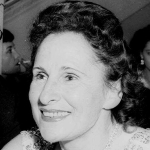
7 September 1894 – 10 June 1982
Gala Dalí, Marquis of Dalí de Púbol, born as Elena Ivanovna Diakonova, usually known simply as Gala, was the Russian wife of poet Paul Éluard and later of artist Salvador Dalí, who were both prominent in surrealism.
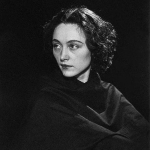
June 21, 1906 – November 28, 1946
Nusch Éluard, born Maria Benz, was a French performer, model and surrealist artist.
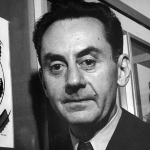
August 27, 1890 – November 18, 1976
Man Ray, born Emmanuel Radnitzky, was an American visual artist who spent most of his career in Paris.
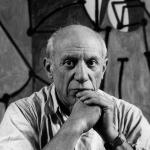
25 October 1881 – 8 April 1973
Pablo Ruiz Picasso was a Spanish painter, sculptor, printmaker, ceramicist, stage designer, poet and playwright who spent most of his adult life in France.
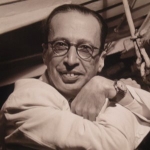
April 19, 1886 – Rio de Janeiro, October 13, 1968
Manuel Carneiro de Sousa Bandeira Filho was a Brazilian poet, literary critic, and translator.
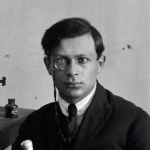
4 April] 1896 – 25 December 1963
Tristan Tzara, born Samuel or Samy Rosenstock, also known as S. Samyro; was a Romanian avant-garde poet, essayist and performance artist.
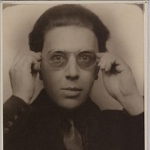
18 February 1896 – 28 September 1966
André Robert Breton was a French writer, poet and anti-fascist.
